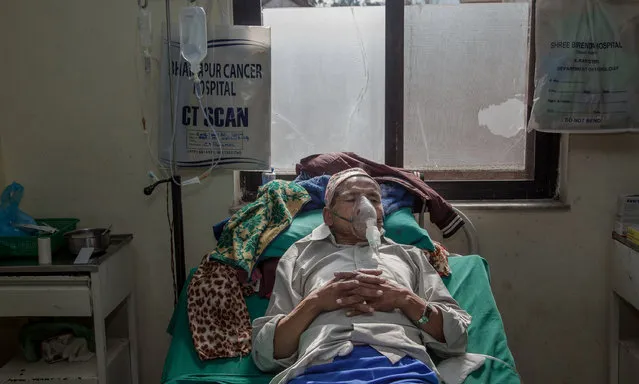
A man with lung cancer lies in a room at Bhaktapur Cancer Hospital in Bhaktapur, Nepal. Established in April 1999 by the Nepal Cancer Relief Society (NCRS), the government of Nepal, Rotary International and others, Bhaktapur Cancer Hospital is a non-profit and community-oriented hospital. It has 72 beds and employs 140 technical, ancillary and administrative staff. (Photo by Omar Havana)
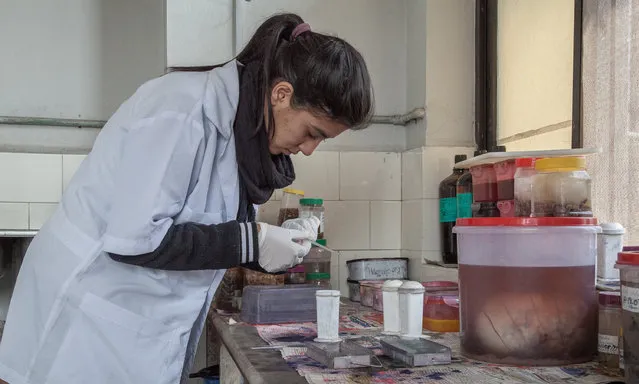
The prevalence of non-communicable diseases (NCDs) – those that are non-infectious or non-transmissible – has increased significantly in Nepal, where they now account for more than 44% of deaths. The most common NCDs include chronic obstructive pulmonary diseases (43%), cardiovascular disease (40%), diabetes mellitus (12%) and cancer (5%). In addition to higher levels of alcohol and tobacco use, urbanisation and changes in diets have contributed to this rise. (Photo by Omar Havana)
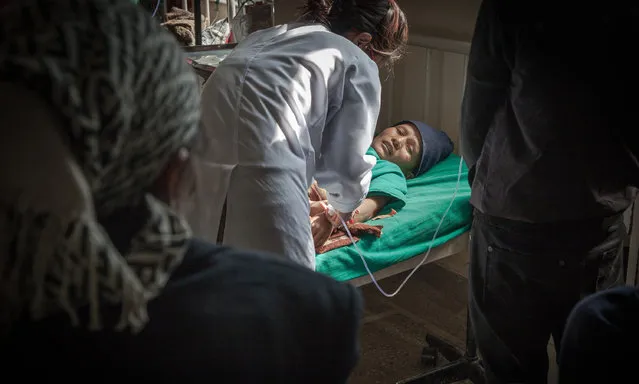
Around 20,000 people die every year from cancer in Nepal, with almost 30,000 new cases a year. The NCRS advocates for tobacco control programmes and lobbies policymakers to pass the Tobacco Products Control and Regulatory Bill of 2010 as well as to ratify the World Health Organisations’s Framework Convention on Tobacco Control. (Photo by Omar Havana)
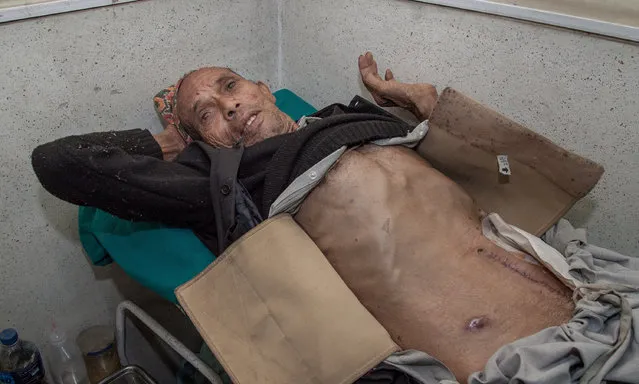
Around 5,000 patients are treated in Bhaktapur Cancer Hospital each year. The hospital’s “tumour board” is staffed by Nepal’s top oncologists, pathologists, gynaecologists and radiologists, and was established by the NCRS to ensure the best treatment is provided to patients through a collaborative process. Cancer patients can register their illness through the NCRS to be considered by the board. (Photo by Omar Havana)
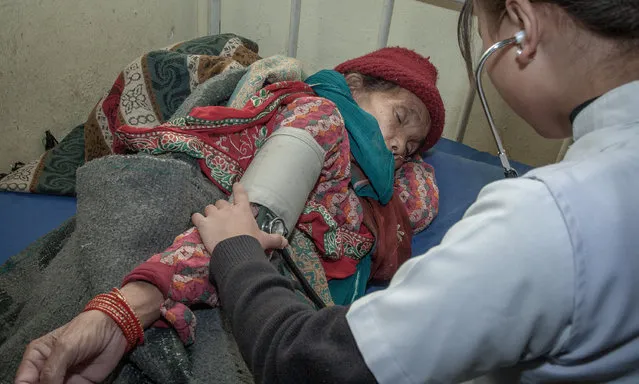
More than 1,100 women die from cervical cancer in Nepal each year, making it the most common cancer among women in the country. Despite being easily preventable, the lack of awareness around screening has made this form of cancer one of the most prevalent in the developing world. (Photo by Omar Havana)
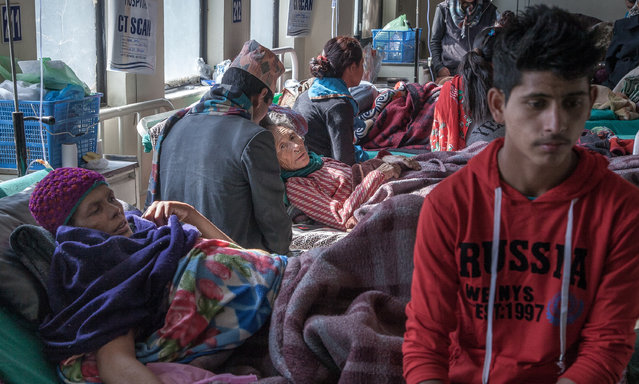
One of the most significant challenges related to cancer in Nepal is the lack of awareness around the prognosis of the disease, as many patients, their families and even healthcare professionals consider cancer to be an incurable disease at any stage. This results in significant delays in bringing patients to hospitals, and high rates of advanced stage cancers and mortality. (Photo by Omar Havana)
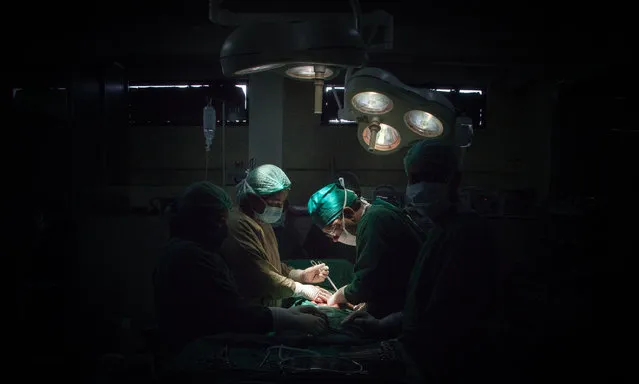
Doctors perform surgery on a patient affected by stomach cancer. Each year, the NCRS holds regular cancer-screening camps – including special cervical cancer screenings for women – in Kathmandu Valley and other remote areas of Nepal. (Photo by Omar Havana)
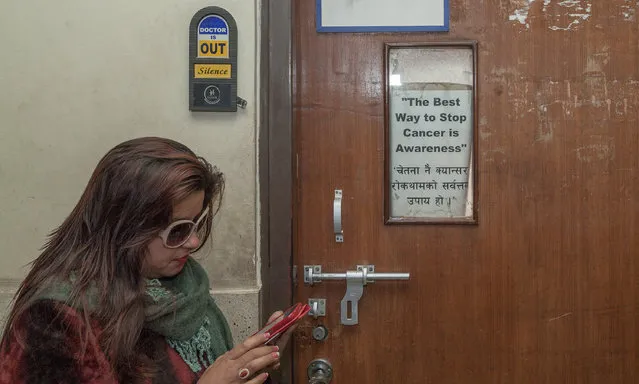
A woman stands by a door displaying a poster to create awareness about cancer. The NCRS conducts primary intervention activities such as cancer and tobacco awareness classes in schools, colleges, hospitals and rehabilitation centres. It also holds conferences for communities and policymakers. (Photo by Omar Havana)
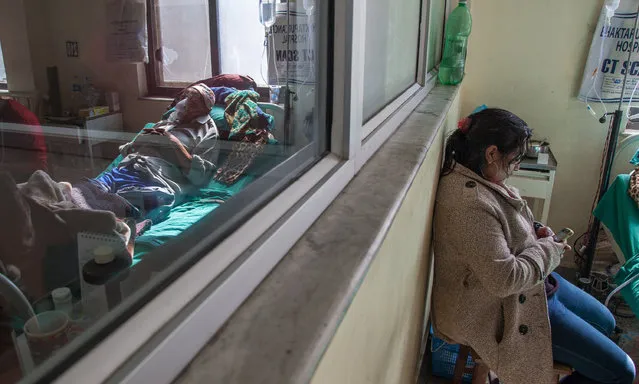
Although rates have increased, the exact prevalence of cancer in Nepal remains unknown due to the absence of a nationwide cancer registry. Only four cancer treatment centres with radiation therapy facilities exist in the country. (Photo by Omar Havana)
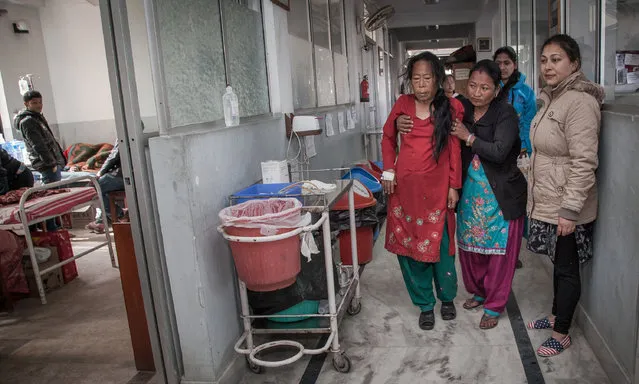
With a per capita income of only $600 (£420), the majority of Nepalis struggle to afford expensive cancer treatments, which individuals have to finance in the absence of a proper health insurance system. Often, people resort to selling property and valuables to pay for treatment. Bhaktapur Cancer Hospital has cut these costs drastically by offering low-cost treatment options. (Photo by Omar Havana)
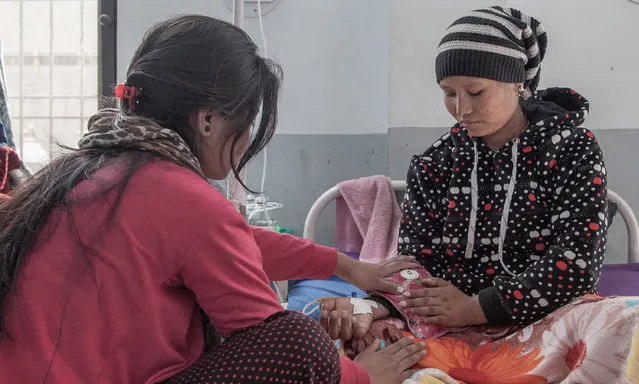
In most treatment facilities in Nepal, healthcare is provided in accordance with what the family is able to pay for, but at Bhaktapur Cancer Hospital a family’s financial resources – including support that might be provided by friends and relatives – are assessed with the help of a hospital counsellor. Families can apply for charity care and receive about $600, although that is rarely enough to cover treatment. As a non-profit organisation, the hospital allocates some of the donations it receives towards helping patients pay for treatment. (Photo by Omar Havana)
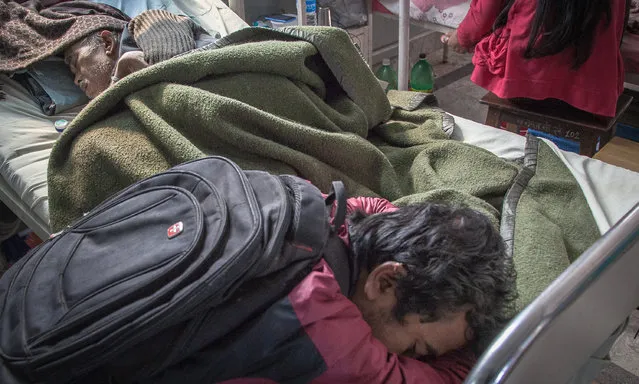
The son of a cancer patient sleeps besides his father. The establishment of Bhaktapur Cancer Hospital was one of the first steps in the fight against cancer in Nepal, but challenges remain. Experts say next steps should include developing treatment centres throughout the country, establishing a national cancer research institute and rolling out a nationwide registry. (Photo by Omar Havana)
06 Mar 2016 09:44:00,
post received
0 comments
